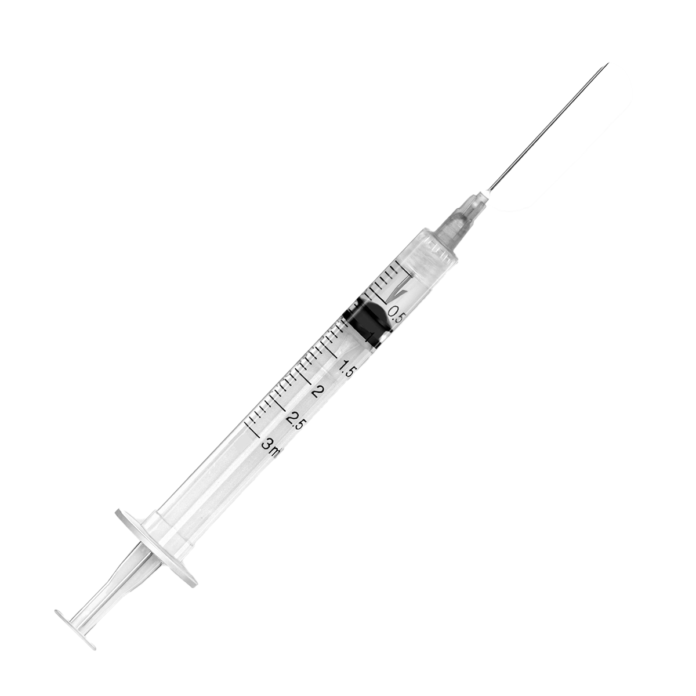Two weeks of spring break in March 2020 quickly turned into months of social distancing and mask-wearing due to the COVID-19 pandemic. At times, some may have felt like it was never-ending, but after a little over nine months, the first vaccine was administered in the United States, according to BBC News. It was only a matter of time for the major rollout of the vaccine to begin.
According to the Jackson County Health Department, there are four phases in which citizens will receive the vaccine, those being phases 1A, 1B, 2, and 3. For school nurse Ashley Wickman, she falls under the first phase and has already received the vaccine.
“Side effects are different depending on the person, and they can be dependent based on what brand or what company you get the vaccine through, because there’s two approved ones right now by the FDA. My only side effect was a sore arm for about a day or two,” Wickman said. In order for the body to build immunity to the virus, Wickman said some people can have minor COVID-like symptoms, but it all comes down to how their body reacts.
“Like most vaccines, this one is developed from mRNA … your immune system is supposed to develop immunity to the virus to where it protects you from the virus, or if you get it, you have less severe symptoms,” Wickman said. Even with its similarities to other vaccines, Wickman said she thinks some may find hesitation when it comes to getting the vaccine due to the recency of its development.
“ … Because it’s a new virus and a new vaccine, there’s just some things that they don’t have answers to, and unknowns scare everyone. So, I think it’s just because it’s new and unknown and there’s not a lot of research behind it right now,” Wickman said. When it comes to pushing people to get the vaccine, Wickman said she doesn’t want to sway people one way or the other.
“I think it’s important for each person to do their own research and determine if they have anything that would put them at risk for a reaction to the vaccine, talking to their doctor if they do, or if they have questions talking to a medical professional. But I think everyone should do their research and make their best decision for themself and their family,” Wickman said.
According to the Jackson County Health department, those considered a higher risk for coronavirus include racial and ethnic minority groups, pregnant women, smokers, and those with chronic kidney disease, COPD, immunocompromised state from solid organ transplant, obesity, serious heart conditions, sickle cell disease, type one and two diabetes, asthma, cystic fibrosis, high blood pressure, liver disease, and a weakened immune system.
For math teacher Sterling Edwards, who falls under phase 1B for getting the vaccine, he encourages those who are hesitant to get the vaccine, to give it a chance and go for it.
“We can’t control what other people do, but if I had a conversation with people, I think just to me, I feel like it’s my duty to get it and everybody has a duty, whether that’s wearing a mask, whether that’s getting vaccinated, whether that’s social distancing; we all have a role to play in trying to get past this pandemic,” Edwards said. On top of that, he thinks for the most part that teachers will have the same mindset as him and will get the vaccine.
As for teachers getting vaccinated having an effect on the school year, Edwards said he doesn’t think it will change much of anything.
“I think until a bigger portion of the population is vaccinated and the numbers in the county and the state go down, I personally don’t see a whole lot of major change to where we’re back five days a week; that’s just my opinion,” Edwards said. Looking towards the upcoming school year, however, Edwards said things might start to look up.
“Whether students are vaccinated next year by the time teachers do [get vaccinated] and whatever other phases get completed, hopefully next year we’ll be able to have a normal school year regardless of where students are in the vaccination process,” Edwards said.
Even though students will not be able to get vaccinated for a while, Edwards said he is not too worried about students having to deal with long-term effects of the virus, unless they have underlying medical conditions. On top of that, Edwards said he thinks the school has done the best they can to make decisions for the students.
“There’s no perfect solution for any of these problems, whether we’re talking about school or things outside of school, it’s just been one of those situations in our world that there are no correct answers, there are no perfect answers … Administration I think has done the best job that they can and [are] trying to balance what’s important for students’ safety, in addition to what’s important for their learning,” Edwards said.














